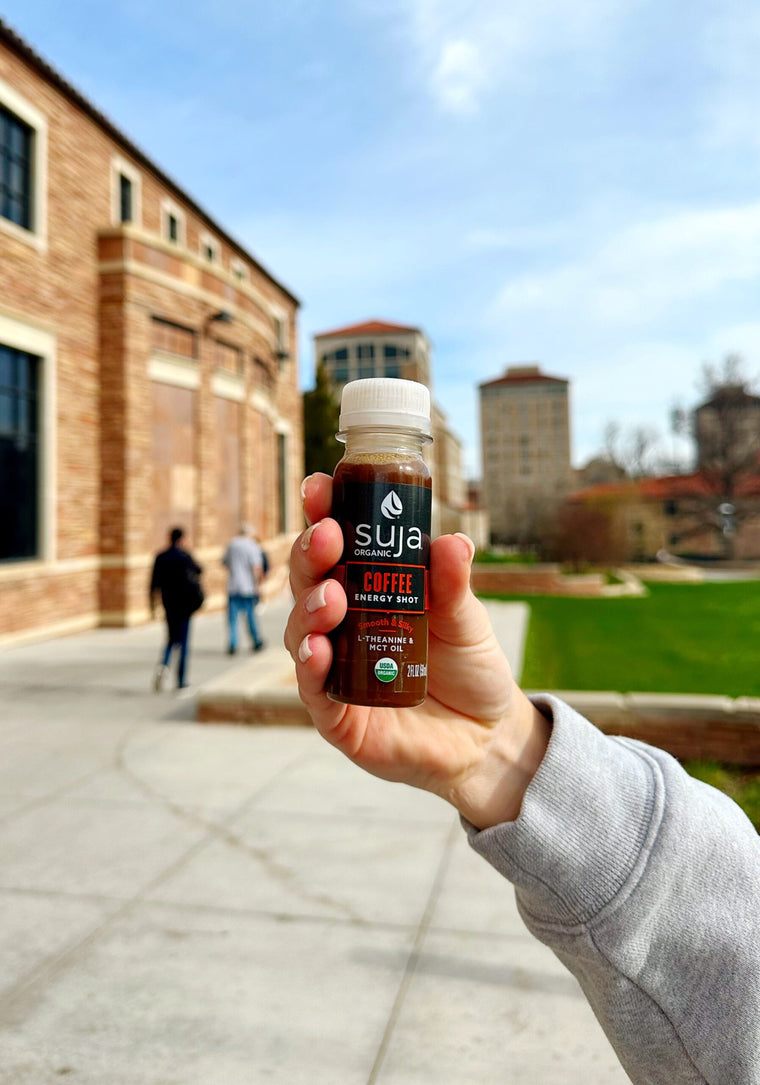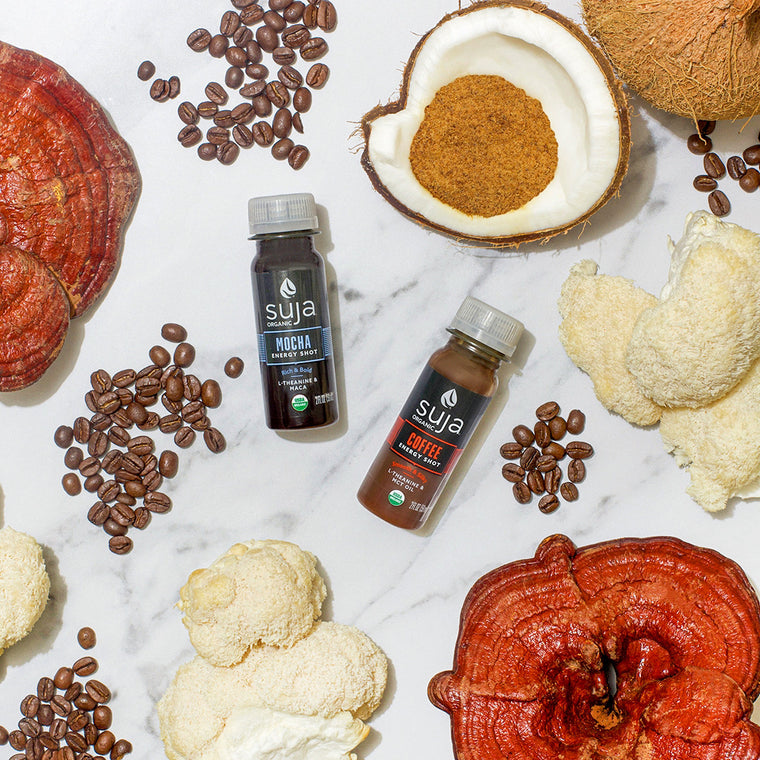 We spend about one-third of our lives sleeping—which equals a whopping 26 years, over a normal lifespan. (1) While you may think this is a loss of valuable time, sleeping is essential to our physical, mental and emotional wellbeing. (1)
Sleep affects our appearance, how we feel and perform on a daily basis, and our quality of life. When we sleep well, we wake up feeling refreshed, alert, and ready to tackle the day. (1) Inadequate sleep can make daily life feel more stressful and negatively impacts our hormones—including those that control hunger. (2) It can also lead to declines in productivity, concentration, learning, memory, and logical reasoning. (2) To get the most out of our sleep, both quantity and quality are important. Although individual sleep requirements vary, the majority of adults need between 7 and 9 hours of uninterrupted sleep each night to feel rejuvenated the following day.(3)
Sleep and Weight Management
The relationship between inadequate sleep and high body mass index (BMI) is well documented. The mechanisms linking short sleep with weight gain are not entirely understood, but several studies have highlighted the role of sleep deprivation in two critical hormones involved in appetite regulation: leptin (an appetite-suppressing hormone) and ghrelin (the appetite-stimulating hormone). In one study, researchers found that among the participants who logged fewer than 8 hours of sleep per night, increased BMI was proportional to decreased sleep. The researchers also found that shorter sleep times correlated with increased circulating ghrelin and decreased leptin—a hormonal pattern that is consistent with increased appetite and obesity.
Sleep and Risk for Chronic Conditions
Sleep also appears to influence the risk of developing certain chronic diseases. Combining a good night's sleep (≥7 hours/night) with other healthy lifestyle factors was shown to reduce heart disease-related morbidity and mortality to a greater extent than adherence to the healthy lifestyle factors alone. In one study participants who ate a healthy diet, exercised, didn’t smoke, and drank alcohol only in moderation were 67% less likely to die from cardiovascular disease (CVD), whereas the participants who regularly logged sufficient sleep and adhered to all four traditional healthy lifestyle factors were 83% less likely to experience a fatal CVD event.
Here are 7 smart solutions for getting good night’s sleep:
1. Maintain a regular wake and sleep pattern seven days a week. This is perhaps the most important step in establishing a healthy sleep schedule, as the body's internal clock, or circadian rhythm, relies on consistency. Establishing a regular sleep and wake pattern can help you fall asleep faster, and remain asleep, until it’s time to wake up and start your day. (4)
2. Unwind before bed with a relaxing, routine activity. It takes some time for the body to shift into “sleep mode.” (5) To nudge things in the right direction, spend the last hour before bed doing a calming activity, such as reading a book, listening to soothing music, or soaking in a hot bath. This helps to create a barrier between stress-promoting activities and your sacred sleep time.
3. Avoid using electronic devices an hour before bed, and during the middle of the night. (5) Using electronic devices such as laptops, smart phones, and tablets before bed can make it hard to fall asleep due to the brain-activating light radiating from the screens of these devices. Even small electronic devices can emit sufficient light to miscue the brain and promote wakefulness, instead of much needed shut-eye.
4. Steer clear of naps, especially in the afternoon. Power naps can provide a refreshing pick-me-up, but if you’re unable to fall asleep when bedtime rolls around, consider nixing even short catnaps during the day.
5. Engage in regular physical activity. While exercising at the expense of adequate sleep is counterproductive, carving out time for daily physical activity can significantly improve your sleep. Vigorous physical activity is best, but even moderate to light exercise will pay off. Exercise at the time of day that works best for you, but for the evening-exercisers among us: avoid vigorous physical activity too close to bedtime, as it takes time for your body to wind back down post-workout. (6)
6. Avoid stimulants (like caffeine), sleep-disrupting substances (alcohol), and heavy meals in the evening. Caffeine is a nervous system stimulant that can interfere with the onset of sleep, while alcohol does its damage by causing poor sleep quality and arousal as the body begins to metabolize it. Finally, large, spicy meals close to bedtime can also be problematic, as they can lead to indigestion. (7)
7. Use your bed only for sleeping. Create a sleep-friendly bedroom and if you can't sleep, go into another room and do something relaxing until you feel tired. The goal is to strengthen the association between your bed and sleep, so refrain from introducing work materials or electronics into your bedroom, and don’t toss and turn in bed while staring anxiously at the clock. (7)
Cheers to a long, beautiful life,
Suja Juice
SOURCES:
1. Why Do We Sleep, Anyway? (2007, December 18). Retrieved from http://healthysleep.med.harvard.edu/healthy/matters/benefits-of-sleep/why-do-we-sleep
2. Andrews, R. (2009, March 9). All About Sleep | Precision Nutrition. Retrieved August 7, 2015, from http://www.precisionnutrition.com/all-about-sleep
3. Sleep and Disease Risk. (2007, November 1). Retrieved August 7, 2015, from http://healthysleep.med.harvard.edu/healthy/matters/consequences/sleep-and-disease-risk
4. Sleep » BU Be Well | Boston University. (2015). Retrieved from http://www.bumc.bu.edu/wellness/self-care/sleep/
5. Healthy Sleep Tips. (2015). Retrieved from http://sleepfoundation.org/sleep-tools-tips/healthy-sleep-tips
6. How much exercise do you need? - Harvard Health. (2007, December 17). Retrieved from http://www.health.harvard.edu/newsletter_article/how-much-exercise-do-you-need
7. How much exercise do you need? - Harvard Health. (2007, December 17). Retrieved from http://www.health.harvard.edu/newsletter_article/how-much-exercise-do-you-need
We spend about one-third of our lives sleeping—which equals a whopping 26 years, over a normal lifespan. (1) While you may think this is a loss of valuable time, sleeping is essential to our physical, mental and emotional wellbeing. (1)
Sleep affects our appearance, how we feel and perform on a daily basis, and our quality of life. When we sleep well, we wake up feeling refreshed, alert, and ready to tackle the day. (1) Inadequate sleep can make daily life feel more stressful and negatively impacts our hormones—including those that control hunger. (2) It can also lead to declines in productivity, concentration, learning, memory, and logical reasoning. (2) To get the most out of our sleep, both quantity and quality are important. Although individual sleep requirements vary, the majority of adults need between 7 and 9 hours of uninterrupted sleep each night to feel rejuvenated the following day.(3)
Sleep and Weight Management
The relationship between inadequate sleep and high body mass index (BMI) is well documented. The mechanisms linking short sleep with weight gain are not entirely understood, but several studies have highlighted the role of sleep deprivation in two critical hormones involved in appetite regulation: leptin (an appetite-suppressing hormone) and ghrelin (the appetite-stimulating hormone). In one study, researchers found that among the participants who logged fewer than 8 hours of sleep per night, increased BMI was proportional to decreased sleep. The researchers also found that shorter sleep times correlated with increased circulating ghrelin and decreased leptin—a hormonal pattern that is consistent with increased appetite and obesity.
Sleep and Risk for Chronic Conditions
Sleep also appears to influence the risk of developing certain chronic diseases. Combining a good night's sleep (≥7 hours/night) with other healthy lifestyle factors was shown to reduce heart disease-related morbidity and mortality to a greater extent than adherence to the healthy lifestyle factors alone. In one study participants who ate a healthy diet, exercised, didn’t smoke, and drank alcohol only in moderation were 67% less likely to die from cardiovascular disease (CVD), whereas the participants who regularly logged sufficient sleep and adhered to all four traditional healthy lifestyle factors were 83% less likely to experience a fatal CVD event.
Here are 7 smart solutions for getting good night’s sleep:
1. Maintain a regular wake and sleep pattern seven days a week. This is perhaps the most important step in establishing a healthy sleep schedule, as the body's internal clock, or circadian rhythm, relies on consistency. Establishing a regular sleep and wake pattern can help you fall asleep faster, and remain asleep, until it’s time to wake up and start your day. (4)
2. Unwind before bed with a relaxing, routine activity. It takes some time for the body to shift into “sleep mode.” (5) To nudge things in the right direction, spend the last hour before bed doing a calming activity, such as reading a book, listening to soothing music, or soaking in a hot bath. This helps to create a barrier between stress-promoting activities and your sacred sleep time.
3. Avoid using electronic devices an hour before bed, and during the middle of the night. (5) Using electronic devices such as laptops, smart phones, and tablets before bed can make it hard to fall asleep due to the brain-activating light radiating from the screens of these devices. Even small electronic devices can emit sufficient light to miscue the brain and promote wakefulness, instead of much needed shut-eye.
4. Steer clear of naps, especially in the afternoon. Power naps can provide a refreshing pick-me-up, but if you’re unable to fall asleep when bedtime rolls around, consider nixing even short catnaps during the day.
5. Engage in regular physical activity. While exercising at the expense of adequate sleep is counterproductive, carving out time for daily physical activity can significantly improve your sleep. Vigorous physical activity is best, but even moderate to light exercise will pay off. Exercise at the time of day that works best for you, but for the evening-exercisers among us: avoid vigorous physical activity too close to bedtime, as it takes time for your body to wind back down post-workout. (6)
6. Avoid stimulants (like caffeine), sleep-disrupting substances (alcohol), and heavy meals in the evening. Caffeine is a nervous system stimulant that can interfere with the onset of sleep, while alcohol does its damage by causing poor sleep quality and arousal as the body begins to metabolize it. Finally, large, spicy meals close to bedtime can also be problematic, as they can lead to indigestion. (7)
7. Use your bed only for sleeping. Create a sleep-friendly bedroom and if you can't sleep, go into another room and do something relaxing until you feel tired. The goal is to strengthen the association between your bed and sleep, so refrain from introducing work materials or electronics into your bedroom, and don’t toss and turn in bed while staring anxiously at the clock. (7)
Cheers to a long, beautiful life,
Suja Juice
SOURCES:
1. Why Do We Sleep, Anyway? (2007, December 18). Retrieved from http://healthysleep.med.harvard.edu/healthy/matters/benefits-of-sleep/why-do-we-sleep
2. Andrews, R. (2009, March 9). All About Sleep | Precision Nutrition. Retrieved August 7, 2015, from http://www.precisionnutrition.com/all-about-sleep
3. Sleep and Disease Risk. (2007, November 1). Retrieved August 7, 2015, from http://healthysleep.med.harvard.edu/healthy/matters/consequences/sleep-and-disease-risk
4. Sleep » BU Be Well | Boston University. (2015). Retrieved from http://www.bumc.bu.edu/wellness/self-care/sleep/
5. Healthy Sleep Tips. (2015). Retrieved from http://sleepfoundation.org/sleep-tools-tips/healthy-sleep-tips
6. How much exercise do you need? - Harvard Health. (2007, December 17). Retrieved from http://www.health.harvard.edu/newsletter_article/how-much-exercise-do-you-need
7. How much exercise do you need? - Harvard Health. (2007, December 17). Retrieved from http://www.health.harvard.edu/newsletter_article/how-much-exercise-do-you-need7 Steps to Getting a Better Night's Sleep
Published December 14, 2014• By Sarah Tweed

Recent blog posts
Read more recipes, lifestyle tips, and nutrition advice and more from our Suja experts.












